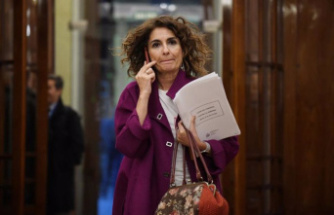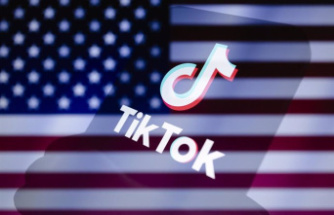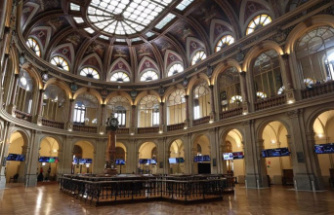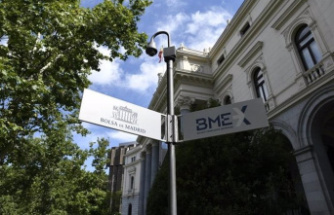WASHINGTON >> President Donald Trump lobs verbal bombshells on Twitter and fiercely criticizes federal judges overseeing his court cases. He openly discusses pending legal matters on which lawyers usually advise their clients to stay mum.
That freewheeling style, uncharacteristic for an American president, is sure to complicate efforts of Justice Department attorneys tasked with defending his executive actions in court. Federal lawyers, invariably inclined to speak through technical legal pleadings instead of on social media, are likely to be asked time and again to account for public statements from the president, including comments that seem to contradict or harm their arguments.
“This is what’s so surprising about Trump’s statements and his use of Twitter: He says all kinds of things that undermine the claims that the government is making in litigation,” said Eric Posner, a University of Chicago law professor. People challenging the government will bring tweets and other statements to the attention of the courts, Posner said, “and courts will pay attention to them.”
That showed up prominently in the legal fight over Trump’s ban on refugees and immigration from seven Muslim-majority nations, which federal courts have put on hold.
Even as Justice Department attorneys worked to convince courts that the policy was not motivated by religious prejudice, Trump himself was quoted in a news interview as saying he wanted to prioritize refugee admissions for Christians. “We are going to help them,” Trump told the Christian Broadcasting Network. “They’ve been horribly treated.”
Those comments were said to have helped persuade acting Attorney General Sally Yates — fired by Trump last week after she declined to defend his executive order — that the policy was meant to disadvantage Muslims. Lawyers for Washington state and Minnesota cited Trump’s public statements about Christian refugees in court filings and noted his campaign pledge to block Muslims from entering the U.S.
And in the opinion Thursday that refused to reinstate the travel ban, a panel of judges from the 9th U.S. Circuit Court of Appeals agreed that remarks made outside the courtroom were fair game for them to consider.
“If the president says ‘x,’ it’s hard for his own lawyer to credibly walk that back and say ‘not x,’” said Andrew Schilling, the former civil division chief of the United States Attorney’s office in Manhattan. Just as a criminal defense attorney would advise a client to remain silent for fear his statements could be used against him, “that’s no less true when your client is the president.”
In just the past week, Trump referred to the jurist who suspended his temporary travel ban as a “so-called judge” and later wrote “Just cannot believe a judge would put our country in such peril. If something happens blame him and court system. People pouring in. Bad!”
He was more restrained Friday morning, saying he had “no doubt” he would eventually win in court on the ban. Later in the day, Trump told reporters he was considering signing a “brand-new order.”
Japan and Trump
President Trump, fresh off patching up ties with China, reassured Japan’s leader Friday that the U.S. will defend its close ally. Together, the pronouncements illustrated a shift toward a more mainstream Trump stance on U.S. policy toward Asia.
Welcoming Prime Minister Shinzo Abe to the White House with a hug, Trump said he wants to bring the post-World War II alliance with Japan “even closer.” While such calls are ritual after these types of meetings, from Trump they’re sure to calm anxieties that he has stoked by demanding that America’s partners pay more for their own defense.
Abe, a nationalist adept at forging relationships with self-styled strongmen overseas, was the only world leader to meet the Republican before his inauguration. He is now the second to do so since Trump took office. Flattering the billionaire businessman, Abe said he would welcome the United States becoming “even greater.”
He also invited Trump to visit Japan this year. Trump accepted, according to a joint statement.
Other leaders of America’s closest neighbors and allies, such as Mexico, Britain and Australia, have been singed by their encounters or conversations with Trump.
But the optics Friday were positive. After a working lunch on economic issues, the two leaders boarded Air Force One with their wives for a trip to Trump’s Mar-a-Lago Club in Florida. They dined with New England Patriots owner Robert Kraft at the club Friday night. Trump and Abe are scheduled to play golf today.
Their Oval Office meeting came hours after Trump reaffirmed Washington’s long-standing “one China” policy in a call with Chinese President Xi Jinping. That statement will similarly ease anxieties in East Asia after Beijing was angered and other capitals were rattled by earlier suggestions that he might use Taiwan as leverage in trade, security and other negotiations.
Although Japan is a historic rival of China, Trump said that his long and “warm” conversation with Xi was good for Tokyo, too.
“I believe that will all work out very well for everybody, China, Japan, the United States and everybody in the region,” Trump said at a joint news conference with Abe.
Our editors found this article on this site using Google and regenerated it for our readers.













